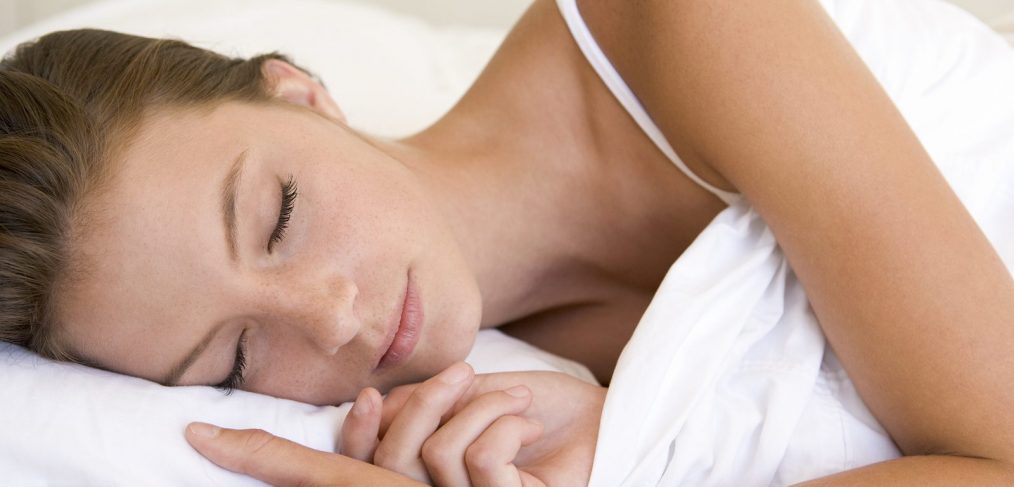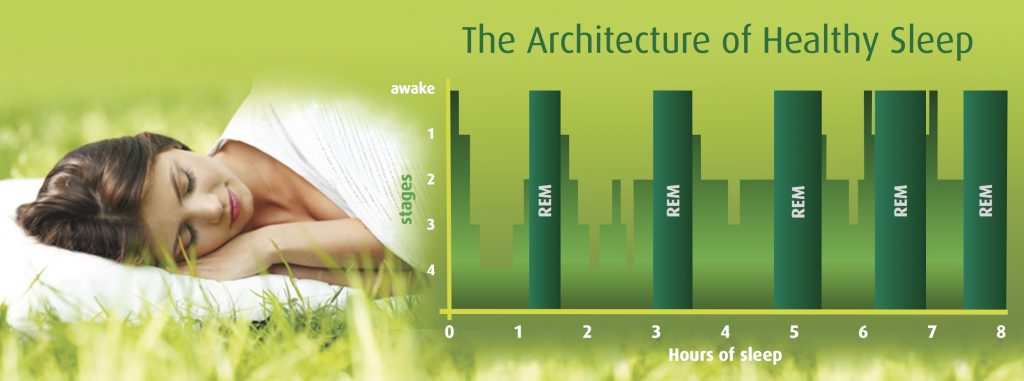
Sleep cycles
Sleep is not a matter of being awake or asleep.
There are actually several different cycles that a healthy person goes through during the night ranging from light sleep to deep sleep.
We all know that even a minimum amount of sleep loss takes its toll on everything you do from your mood to how you handle stress. Sleep is not a luxury and you cannot afford to skip just because you are too busy with work or social life, you need your sleep.
Sleep is a fundamental performance tool. If you don’t get enough of it, you’ll never be the best version of yourself.
Sleep isn’t simply a case of your brain shutting off!
Your brain in fact stays busy during sleep organising a number of biological tasks that keep you healthy. Without enough hours of sleep, your health will suffer, especially your mental health.
When you are getting the amount of sleep you need, you’ll be feeling great and full of energy…all day! Most people need about 7 hours of sleep a night, and I know that many of you don’t get that. There seems to be a huge difference between the amount of sleep people survive on, and what is needed to be really well.
It’s easy to start feeling that being a little foggy headed and a little tired is normal. It’s not.
If you have enough sleep, you’ll feel clear headed, energetic and creative.
Sleep consists of stages 1, 2 and 3 Non REM and REM sleep.
Stage 1 non-REM sleep is a short period of a few minutes when your heartbeat, breathing, and eye movements slow down. Muscles start to relax with only a little movement. Your brain waves begin to slow from their daytime wakefulness Beta Brain waves to Alpha Brain waves.
Stage 2 non-REM sleep is light sleep. You spend approximately 45-55% of your sleep time in Stage 2 non-REM sleep over the course of the night. Your heartbeat and breathing slows down and your muscles relax further. Your body temperature will drop and your eyes become still. Brain wave activity is slow but there are burst of activity called Sleep Spindles. You are easily woken from Stage 2 Non-Rem sleep as the brain responds to external stimulus by producing K-Complex brain waves. Research has shown that people who have a higher spindle activity are less likely to keep waking up. The spindles are shown to help keep the person in a quiet state during Stage 2 non-REM sleep.
Stage 3 non-REM sleep is deep sleep. If you’ve not had enough, you’ll will not feel refreshed in the morning. Deep sleep occurs mostly in the first part of the night. Your heartbeat and breath rate are at the slowest levels. It’s more difficult to wake someone up from deep sleep.
REM Sleep
REM sleep usually happens within the first 90 minutes after falling asleep. You will, however, experience more REM in the early hours of the morning. Your eyes move rapidly behind the eyelids. This is your dream sleep. Your brain paralyses your muscles to prevent you from acting out your dreams. REM sleep is very important for memory consolidation. You spend approximately 10-12% of your sleep time in REM sleep.
When people are depressed, they tend to be in REM sleep more and less in deep sleep. A healthy person goes between REM and non REM sleep about 5 times during the night and will be dreaming more nearer to the morning.
See below an example of the average healthy person’s sleep pattern. You will see that you move back and forth between light sleep, deep sleep and REM sleep. Most of the deep sleep happens during the first half of the night. As the night goes on, your REM sleep stages start to lengthen and they alternate with lighter sleep rather than deep sleep. Usually people find that if they are going to wake during the night it is in the early hours of the morning as you are in naturally in a light sleep.

Sleeping properly is not just about spending enough time in bed.
It is the amount of time you are in each of the sleep cycles that is important. Sleep is a complicated blend of delicate cycles that easily get disturbed by stress and depression. It’s important to take steps sooner rather than later if your sleep starts to become disturbed.
If you aren’t sleeping well, one of the things you can do to find out why is take a Melatonin Test. It will show you if your circadian rhythm is disturbed and you can take appropriate steps to correct it. For example improving your daily rituals, improving natural daylight exposure, reducing artificial lighting in the evening and adding some meditative practices into your day.
